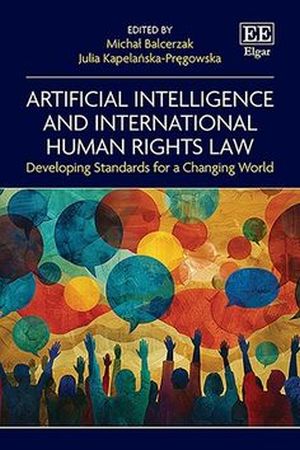We will be closed from 5pm Thursday 17th April for the Easter Bank Holidays, re-opening at 8.30am on Tuesday 22nd April. Any orders placed during this period will be processed when we re-open.

This book explores how international organizations have addressed the actual and potential human rights issues caused by AI technologies. Combining in-depth theoretical and doctrinal analysis with a pragmatic approach, it investigates vital questions on where accountability and responsibility for AI-related violations of human rights should lie.
Expert contributors examine the evolution, strengths, weaknesses and loopholes of international guidelines and standard-setting initiatives for AI by the United Nations, Council of Europe and European Union. Chapters focus on key situations in which the use of AI raises human rights concerns, including AI-supported decision-making in healthcare, public administration and cases of asylum; the use of facial recognition software; and the creation of deepfakes. Ultimately, the book highlights the need to establish effective oversight systems and adaptable remedies to protect human rights as AI continues to develop.
Demonstrating the significant implications of AI technology in all areas of human life, this book is a vital resource for academics and students of international human rights law and European law. It is also an important read for policymakers and professionals interested in data security and the utilization of AI-powered solutions.